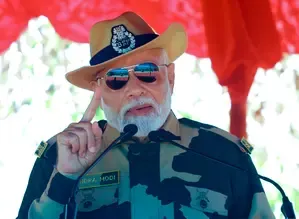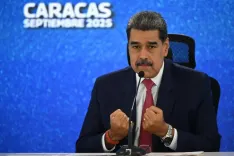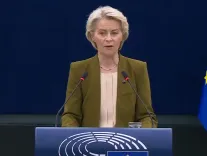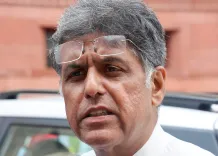Did PM Modi’s Zero-Tolerance Policy Signal a Shift in Strategy Against Pakistan’s Terrorism?

Synopsis
Key Takeaways
- Zero tolerance for terrorism is now a core principle of India's defense policy.
- The abrogation of Article 370 signifies India's commitment to its territorial integrity.
- Operation Sindoor is a response to increasing terrorist threats from Pakistan.
- Dialogue with Pakistan is conditional upon a cessation of terror activities.
- India's security doctrine emphasizes decisive action and the dismantling of terror infrastructure.
New Delhi, Sep 17 (NationPress) Despite facing significant humiliation from the surgical strikes and the Balakot airstrikes, Pakistan appears to have failed to grasp the severity of its situation. The surgical strikes were executed following the Uri terror attack, while the Balakot operation was a direct response to the Pulwama attack.
The Balakot airstrike sent a powerful message as it was conducted within Pakistani borders. Yet, undeterred by past failures, Pakistan engaged in a reckless venture in Pahalgam, resulting in the brutal killings of 26 innocent individuals.
All eyes were on Prime Minister Narendra Modi as to what measures he would implement. Officials close to the situation indicated that there was substantial public pressure on the PM. Citizens were demanding a robust response that exceeded the actions taken during Balakot or the surgical strikes.
In a high-level meeting with military leaders, PM Modi emphasized the necessity of a response that Pakistan would not soon forget. He granted the armed forces the autonomy to act with complete governmental support.
Several factors were at play, including timing and the reality of engaging another nuclear power. Nevertheless, Indian leadership was resolute in confronting Pakistan’s nuclear threats, which were often leveraged to deter significant retaliation from India.
For years, Pakistan has evaded accountability for its terror strikes, often facing only condemnation and denials. Each incident was characterized as cross-border terrorism. Under PM Modi, following the Pahalgam attack, a new doctrine was established, categorizing any terror act as an act of war.
As military strategies were developed, PM Modi and his team closely observed the circumstances. Once readiness was confirmed, the green light was given, leading to the initiation of Operation Sindoor.
Under PM Modi’s leadership, the stance towards Pakistan has been unambiguous: no dialogue until Pakistan ceases its support for terrorism against India. During his initial term, a surprise visit to meet Nawaz Sharif in Pakistan was intended to foster better relations. However, India faced betrayal when Pakistani terrorists executed the Pathankot attack.
Since then, relations have remained strained. The PM has consistently reminded Pakistan that discussions can resume only when terrorism is addressed. However, with ongoing terrorist activities sponsored by Pakistan, it became evident that a forceful stance was necessary.
The abrogation of Article 370 in Jammu and Kashmir represented a significant turning point. Security forces were fully prepared for potential retaliatory actions from Pakistan. This abrogation served as a strong statement that Jammu and Kashmir is a fundamental part of India, leaving no room for negotiation. Establishing a Union Territory was also crucial for the central government to maintain control until stability was restored. This decisive action taken by the PM-led government resulted in significant changes for J&K, including development, increased tourism, and a notable decline in terrorist activities.
After the launch of Operation Sindoor, during a national address, PM Modi declared that India would not engage in further discussions with Pakistan except regarding terrorism and Pakistan-occupied Kashmir (PoK). He issued a stern warning to Pakistan’s leadership, indicating that continued aggression could lead to dire consequences for them.
The PM also articulated the three fundamental principles of India’s security doctrine: Decisive Retaliation, No Tolerance for Nuclear Blackmail, and No Distinction Between Terror Sponsors and Terrorists.
The policy towards Pakistan is unequivocal: zero tolerance for terrorism. The PM urged that for Pakistan to secure its future, it must dismantle its terror infrastructure. He underscored that trade and terrorism cannot coexist, emphasizing that blood and water cannot flow together.








